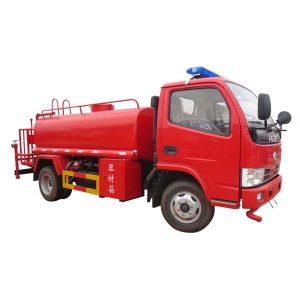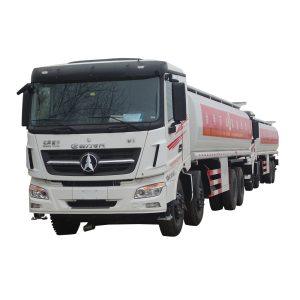Monday to Saturday - 8:00 -17:30
What Does a Bin Lifter Truck Do?
Bin lifter trucks are essential in waste management, designed to handle and transport waste efficiently. They simplify the process of collecting and disposing of waste from various types of bins.
Key Functions of a Bin Lifter Truck
Bin lifter trucks perform several vital tasks that contribute to effective waste management. Understanding these functions highlights their importance in maintaining cleanliness and order.
- Collection of Waste
A primary function of a bin lifter truck is the collection of waste from residential, commercial, and industrial areas. These trucks are equipped with mechanisms to lift and empty bins of different sizes and shapes. The efficiency of collection depends on the truck’s hydraulic and lifting systems, which ensure a secure grip and smooth operation.
Operators control the lifting arms and grippers to align with the bins, preventing spills or mishaps. The process involves precise coordination to handle multiple bins quickly, reducing the time spent at each location. This efficiency is crucial in densely populated areas where waste accumulates rapidly, requiring frequent collection.
- Transportation of Waste
After collecting waste, bin lifter trucks transport it to designated disposal sites. The trucks are built to handle heavy loads, ensuring safe and efficient transportation.
The design of the truck’s chassis and storage area is crucial for maintaining balance and stability during transit. Proper weight distribution prevents accidents and ensures smooth travel over various terrains. Operators must be skilled in navigating urban and rural areas, understanding traffic regulations, and ensuring timely delivery to waste processing facilities.
- Environmental Impact
By efficiently collecting and transporting waste, bin lifter trucks help minimize environmental impact. They play a role in reducing litter and preventing pollution.
Advanced bin lifter trucks are equipped with eco-friendly features, such as low-emission engines and noise reduction technologies. These innovations contribute to cleaner air and quieter operations, benefiting both urban and rural communities. The trucks also support recycling initiatives by separating recyclable materials during collection, promoting sustainable waste management practices.
Maintenance and Safety
Ensuring the reliability and safety of bin lifter trucks involves regular maintenance and adherence to safety protocols. Proper upkeep extends the lifespan of the trucks and enhances their performance.
- Regular Maintenance
Routine checks and maintenance are vital for the optimal functioning of bin lifter trucks. This includes inspecting hydraulic systems, checking for wear and tear, and ensuring that all mechanical components are in good condition. Regular maintenance prevents unexpected breakdowns and reduces repair costs, keeping the trucks operational and efficient.
- Safety Protocols
Safety is paramount when operating bin lifter trucks. Operators must be trained in handling equipment, understanding emergency procedures, and adhering to safety guidelines. This training helps prevent accidents and ensures a safe working environment for both operators and the public. Implementing safety features such as alarms, sensors, and emergency stop mechanisms further enhances operational safety.
Conclusion
In summary, bin lifter trucks are crucial for efficient waste management, performing essential functions like waste collection, transportation, and environmental protection. Regular maintenance and strict safety protocols ensure their reliability and effectiveness, making them indispensable in maintaining clean and sustainable communities.



